Caddie Woodlawn
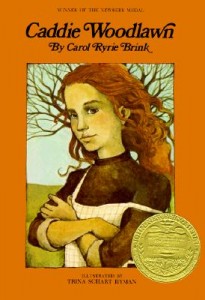
It took us a long time to read Caddie Woodlawn. But we never lost the thread, and our interest never waned.
I enjoyed this book when I was a child, and I enjoyed revisiting it with my children just as much. Assuming most folks are familiar with the plot of this frontier story about a girl in Wisconsin around the time of the Civil War, I’m going to concentrate on our reactions as we close the book.
First, comparison to Laura Ingalls Wilder is hard to resist. With the girls, I brought up the episode where Laura lures Nellie Olsen into leech-infested waters in On the Banks of Plum Creek, and asked them to compare it to the episode in this book where Caddie and her brothers play a series of practical jokes on their prim cousin Annabelle from Boston — culminating in an egg dropped down her dress. It was interesting to hear their thoughts. Nellie is more unrelentingly mean than Annabelle; Laura never feels sorry, but Caddie is already having pangs of conscience even before the final joke is played; Laura is never disciplined, but Caddie is. (Unfairly — leading down another bunny trail discussion about justice and equality.) On the whole Carol Ryrie Brink’s tale is more rich and instructive.
When I asked the girls whether they liked one book more than the other, one daughter said immediately, “Caddie.” That was startling to me… After all, we’ve had all eight of the Little House books to build affection for Laura, and here comes Caddie, rising to first place in just one book about one year. When asked, my daughter said it was because Caddie has more adventures. I’m not sure that’s an accurate perception, but I do think that Caddie has a more compassionate heart than Laura, who is interested in justice but doesn’t really do anything comparable to what Caddie does when she rides to the Indian camp to warn them away from disgruntled settlers, or uses her silver dollar to buy gifts for little Indian boys whose mother has left, or recognizes that her tattletale little sister is lonely.
I’m not sure where I intended to go with this review when I started… I don’t think I meant to write a comparison between Caddie and Laura, but here I am. Oh well. As long as I’m in this swamp, I’ll mention that I felt this book gives a greater sense of the historical context than the Little House books. You never hear much about any outside events that anchor the Ingalls family in a specific period of history. From the beginning (when the circuit rider leaves his watch to be repaired) to the end (when Dunnville has celebrated the ending of the Civil War and mourned the assassination of the President), Caddie Woodlawn is a world conscious of the passing of time.
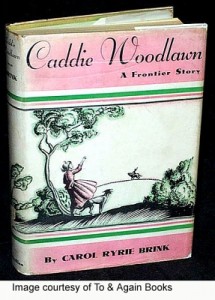
Most basically, the passage of time marked by this book is personal. It’s a coming of age story, and Caddie’s awakening is gentler and kinder than Laura’s in the years between Plum Creek and Silver Lake. Laura’s sister goes blind, her family goes west, and her dog dies, and as she watches Pa drive away Laura comments briefly that she realized at that moment that she’d grown up and had a job to do. Caddie’s family enjoys a comfortable margin, her family opts to stay together in Wisconsin instead of going away to England, and her dog returns (a favorite scene for all three of us!).
The best and most pointed passage to adulthood comes in a conversation between Caddie and her father, when he gives her a vision of the future that inspires her in a time when she desperately needs the encouragement. Speaking of the need for women who can temper the masculine pioneer world with gentleness, he says,
It takes nerve and courage and patience, but good women have those things. They have them just as much as the men who build bridges and carve roads through the wilderness. A woman’s work is something fine and noble to grow up to, and it is just as important as a man’s. But no man could ever do it well. I don’t want you to be the silly, affected person with fine clothes and manners whom folks sometimes call a lady. No, that is not what I want for you, my little girl. I want you to be a woman with a wise and understanding heart, healthy in body and honest in mind…
His words make the difference for Caddie. She wakes feeling like a different person:
Something strange had happened to Caddie in the night. When she awoke she knew that she need not be afraid of growing up. It was not just sewing and weaving and wearing stays. It was something more thrilling than that. It was a responsibility but, as Father spoke of it, it was a beautiful and precious one, and Caddie was ready to go and meet it.
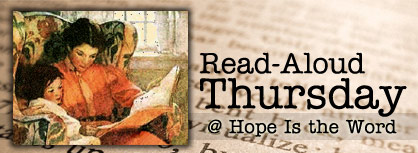
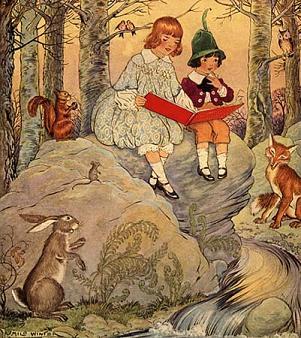
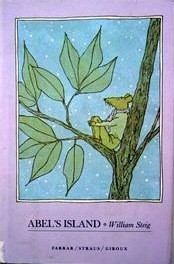
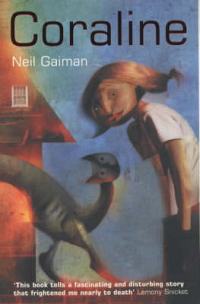
8 Comments
Barbara H.
I didn’t read this until I was an adult — I don’t think I’d ever heard of it til then. Somehow it didn’t quite grab me as much as the Little House books did. It’s been years, though, since I read any of them, so I don’t know if my perceptions would be different now. I do remember that that quote about “woman’s work” stood out to me as one of my favorites and the main thing I remember from it.
Amy @ Hope Is the Word
What a great review, Janet! My girls have listened to CW in audio already and loved it. It’s one of the books I loved as a child and really wanted to read to them, but I knew it to be a “safe” story for them at their very young ages (they first listened to it last year, I think), so I brought the audiobook home. I think CW has more spirit, somehow, than Laura. Maybe it is her friendship with Indian John. I have to mention one of my favorite parts–“If at first you don’t fricassee, fry, fry a hen.”. Love it! :-)
Janet
Great scene! :-)
Alice@Supratentorial
This is another one I’ve never read. Great review, you make me want to go out and get it. Having not read it, I wonder if one of the differences between Laura and Caddie is that Laura was real. I see that Caddie was based on the author’s grandmother but I’d guess that the author made it into a neater story. Whereas Laura Ingalls Wilder is telling her own memory of her own small world and it’s not always neat. Just a thought.
Janet
Good point. Wouldn’t it be great if we all had a biographer who could find the excitement and drama in our stories?
Pingback:
Carrie, Reading to Know
I remember liking Caddie more than Laura also. I can’t WAIT to read this one with my own daughter but you are making me want to pull my copy off the shelf for a quick re-read myself!
Read Aloud Dad
Fantastic. I’m about to order Caddie W. for my twins (4-year old) – to read it aloud with them in several years.
The book sounds wonderful from your review!
Read Aloud Dad